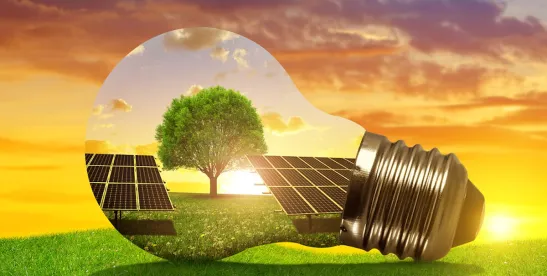The Biden administration’s Inflation Reduction Act (IRA) and Infrastructure Investment and Jobs Act (IIJA) offer significant tax credits for investment in the energy and renewables sectors that will likely be impacted by the 2024 presidential election. Kamala Harris has confirmed that these incentives will remain available should she win in November.
On the other hand, Donald Trump has stated that he plans to eliminate all unspent funds available under the IRA and focus on maximizing oil and gas production. The resulting uncertainty regarding the continued availability of these credits requires companies contemplating future energy projects to assess the potential impact of a full or partial repeal of the IRA and IIJA on their bottom line.
The IRA and IIJA offer numerous tax incentives for investment in green energy projects. For example, the Production Tax Credit offers a tax credit to renewable electricity producers based on the amount of electricity generated. For companies that do not claim the Production Tax Credit, the Investment Tax Credit provides separate tax credits for investment into renewable energy projects. Additional credits encourage solar, wind, electric vehicle, carbon capture, clean fuel, and green hydrogen investments, among others. Companies can also seek non-energy-specific credits that promote investment in disadvantaged communities and programs that provide training in skilled industries. Beyond tax credits, programs like the Powering Affordable Clean Energy Program offer partially forgivable loans to fund new clean energy and energy storage projects in rural areas.
Although the IRA and IIJA’s energy incentives will likely remain available in a Harris administration, the effect of a Trump win in November is more difficult to predict. While Trump has explicitly called for a full repeal of all green energy credits under the IRA, some Republicans publicly urged support for the credits, citing significant investments and benefits to red states. These significant current and planned investments reduce the risk of full repeal. However, a Trump administration may target portions of the bill for partial repeal. Former President Trump has been particularly critical of the electric vehicle incentives and emission goals, and a Trump administration may further seek to reduce funding for wind and solar projects.
On balance, companies considering future investments that rely on IRA and IIJA tax credits should carefully consider whether specific tax credits they seek to utilize are at risk of being reduced or eliminated. These projects may also be affected by proposed tariffs on Chinese imports that would increase the cost of components commonly used in alternative energy projects. Jones Walker’s professionals in the energy, environmental, regulatory, and renewables sectors can assist businesses in assessing how the upcoming election’s outcome will affect their current and planned investments in energy projects that qualify for incentives under the IRA and IIJA.





 />i
/>i

